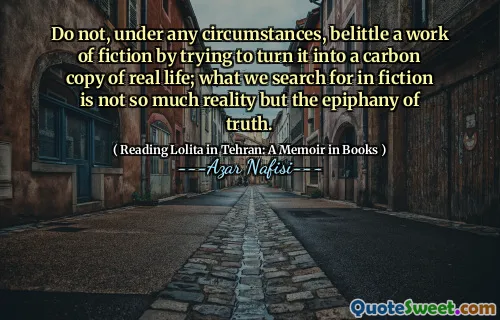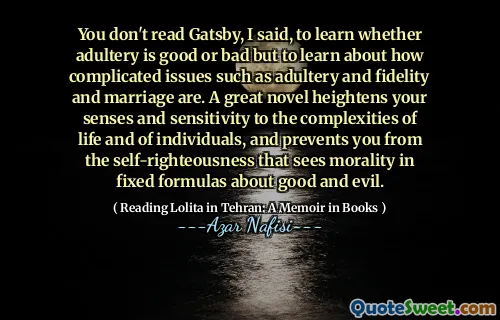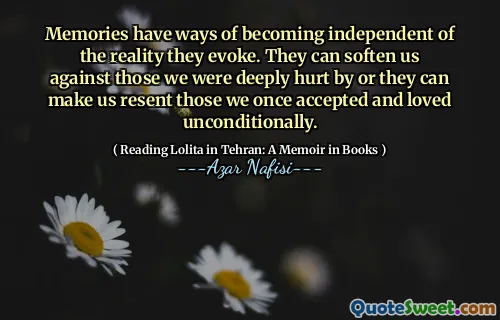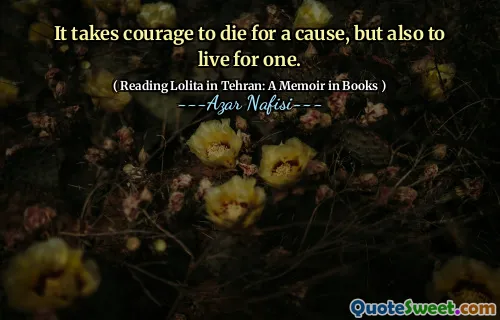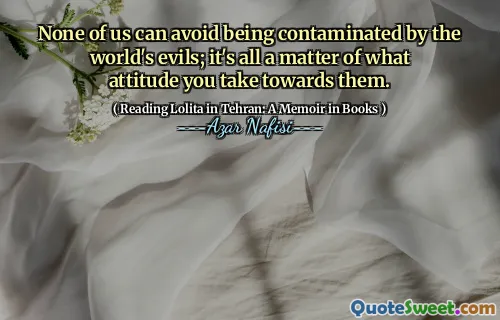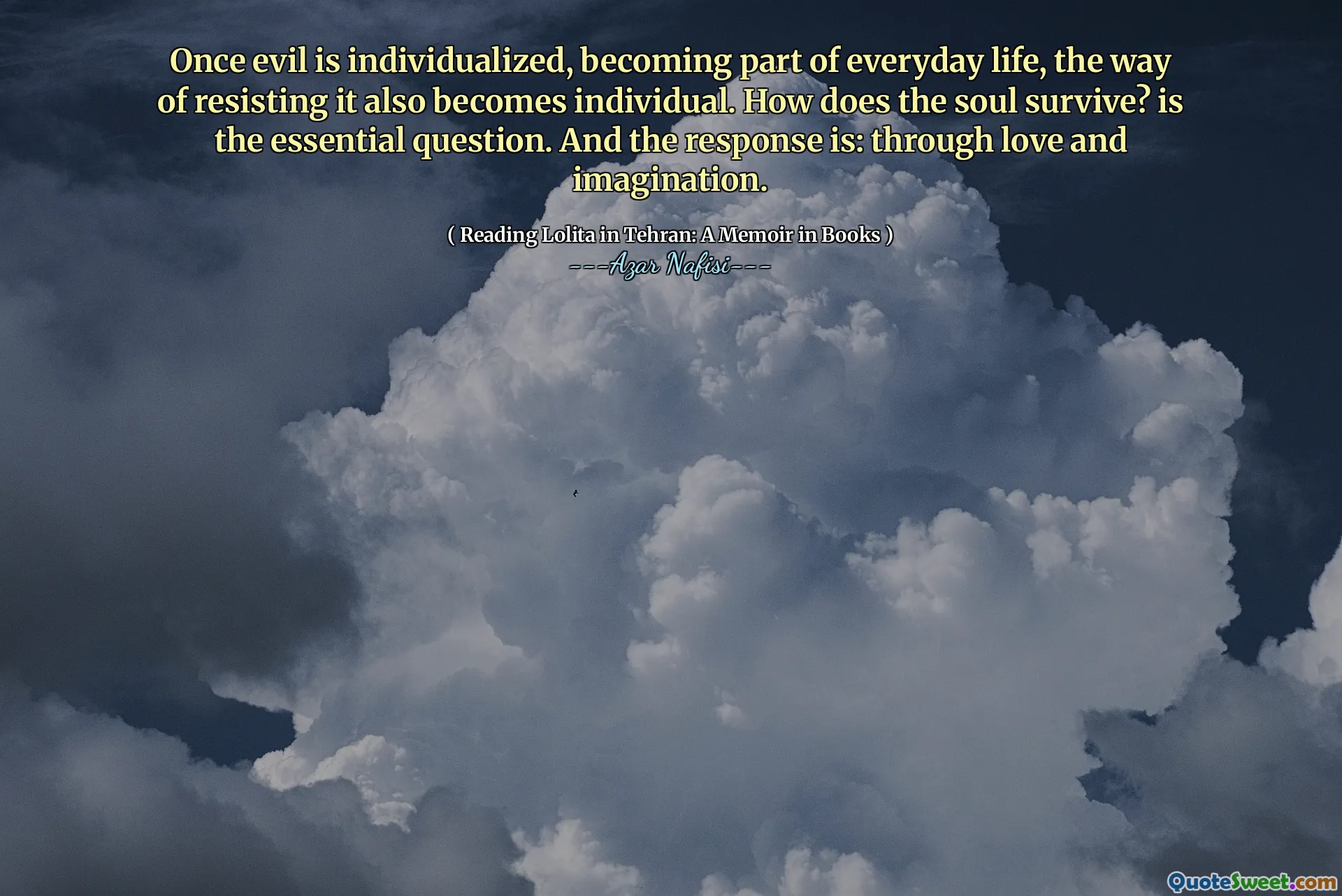
Once evil is individualized, becoming part of everyday life, the way of resisting it also becomes individual. How does the soul survive? is the essential question. And the response is: through love and imagination.
📖 Azar Nafisi
In "Reading Lolita in Tehran," Azar Nafisi discusses how once evil is perceived as a personal issue woven into daily existence, individual resistance emerges as a means to combat it. This shift emphasizes the importance of personal agency in facing oppressive realities, where one's actions become a form of rebellion against collective malevolence. The struggle against this individualized evil raises a profound question about the survival of the human spirit amid such adversity.
Nafisi suggests that the key to enduring these challenges lies in two powerful forces: love and imagination. Love fosters connection and compassion, countering the isolating effects of evil, while imagination provides the capacity to envision a different reality—a crucial aspect of resilience. Together, these elements form a lifeline for the soul, enabling individuals to retain hope and transcend the oppressive circumstances around them.

